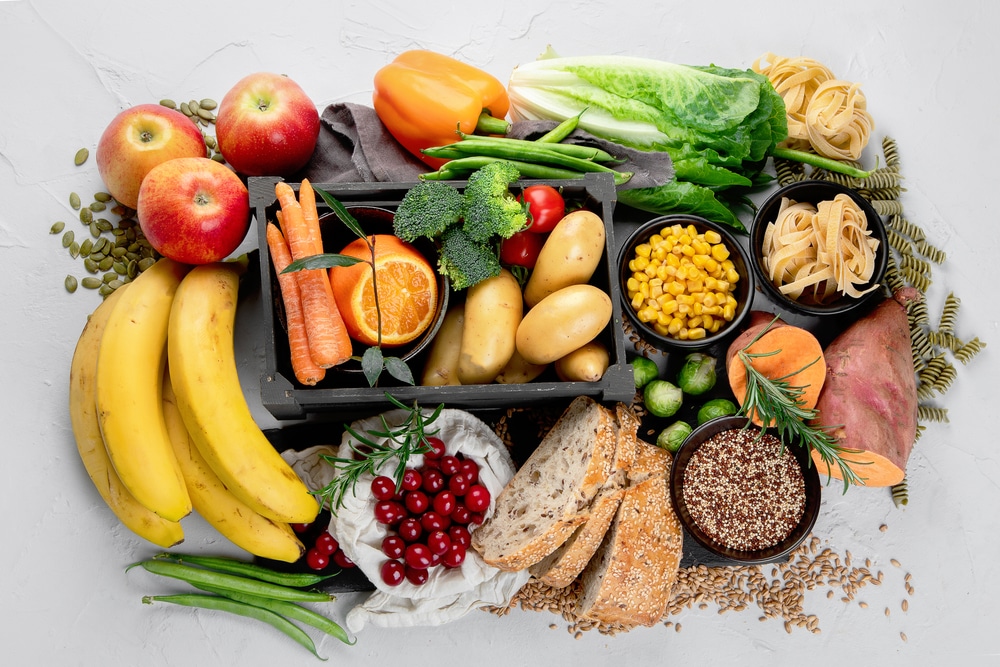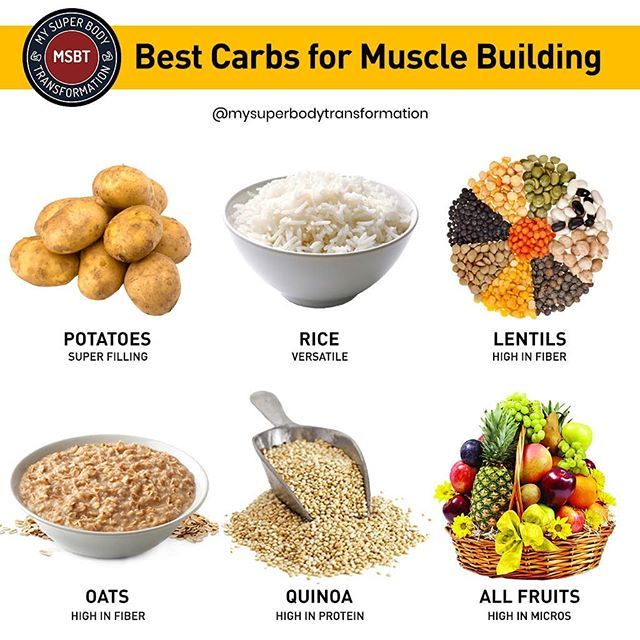Practical Ways to Optimize Carbohydrates for Effective Muscle Building in 2025
The importance of carbohydrates in muscle building cannot be overstated. For athletes and fitness enthusiasts, understanding how to effectively use Kohlenhydrate für Sportler is essential for maximizing performance and supporting muscle growth. This article aims to explore the various aspects of Kohlenhydrate Muskelaufbau, highlighting the best sources, timing of intake, and overall strategies for optimizing carbohydrate consumption for enhanced muscle development.
Carbohydrates serve as the primary energy source for high-intensity workouts, playing a vital role in Muskelaufbau Ernährung. Athletes who properly manage their carbohydrate intake can experience improved energy levels, sustained performance during workouts, and faster recovery times. In this comprehensive guide, we will delve into the types of carbohydrates that are most beneficial, how they can be incorporated into daily nutrition, and their relationship with Kohlenhydrate und Proteine for optimal outcomes.
We will also look at practical tips, timing of carbohydrate intake, and ways to monitor carbohydrate consumption as part of a well-rounded Sporternährung plan. Readers can expect an informative roadmap to not only enhance their muscle-building efforts but also to ensure that they are fueling their bodies effectively.
As we progress, you’ll gain insights into the best carbohydrate sources for muscle building and learn how to implement a structured meal plan tailored to your individual needs. Key takeaways include understanding gesunde Kohlenhydrate, avoiding common pitfalls, and employing effective strategies for integrating carbohydrates into both pre- and post-workout routines.
Essential Guide to Carbohydrates for Effective Muscle Growth
Understanding Different Types of Carbohydrates
Carbohydrates can be classified as simple or complex, playing distinct roles in energy provision. Einfache Kohlenhydrate, such as sugars found in fruits or honey, are quickly absorbed, providing a fast energy boost. In contrast, komplexe Kohlenhydrate—found in foods like whole grains, legumes, and vegetables—are digested slower, offering sustained energy release over a longer period.
For athletes, the type of carbohydrates consumed can significantly influence performance. While simple carbs may be beneficial immediately before or after a workout for quick energy replenishment, complex carbs should form the foundation of an athlete’s daily nutrition, ensuring they maintain consistent energy levels throughout intense training sessions.
Timing of Carbohydrates: Pre and Post-Workout Strategies
The Timing von Kohlenhydraten is crucial for maximizing their benefits. Consuming carbohydrates before a workout ensures optimal glycogen stores, fueling muscles for performance. A meal rich in carbohydrates about 2-3 hours before exercising can significantly enhance strength and stamina.
Post-workout, the focus should shift to replenishing glycogen stores. Consuming carbohydrates alongside protein aids in muscle recovery and growth. For instance, a banana with a protein shake post-workout can be a quick and effective recovery option, showcasing the synergy of Kohlenhydrate und Proteine.
Incorporating Kohlenhydrate nach dem Training into a recovery meal is an effective strategy. Foods such as rice, pasta, or whole grain bread combined with a source of protein can bolster recovery, prevent fatigue, and prepare the body for the next session.
How to Calculate Your Carbohydrate Needs
Understanding your individual Kohlenhydratbedarf is essential for tailoring a nutrition plan that meets your workout demands. The general guideline is to consume approximately 3-7 grams of carbohydrates per kilogram of body weight per day, depending on the intensity and duration of training.
Monitor your energy levels and performance to determine your needs more accurately. Adjust your carbohydrate intake based on workout intensity, such as increasing your intake before major lifts or endurance sessions, and strategically decreasing on rest days.
Healthy Carbohydrate Sources to Fuel Muscle Building
When selecting kohlenhydratreiche Lebensmittel, prioritize whole, unprocessed options. Choices such as Vollkornprodukte, quinoa, sweet potatoes, and fruits provide not only carbohydrates but also vital nutrients and fiber. Opt for Reis und Pasta for carbohydrate-rich meals, ensuring they form a part of a balanced diet.
Including a variety of Obst und Gemüse enhances your carbohydrate intake while packing additional vitamins and minerals essential for overall health and recovery. Potatoes, oats, and even Bananen für Training are great examples that combine healthy carbohydrates with convenient preparation methods.

Optimizing Carbohydrate Intake for Maximum Performance
Creating a Balanced Dietary Plan
Integrating carbohydrates into your meal plan effectively requires careful consideration of your overall nutritional goals. A successful Ernährungsplan für Muskelaufbau should balance carbohydrates with proteins and fats while being mindful of caloric intake. A common mistake is overemphasizing one macronutrient at the expense of others.
Focusing on a nutrient-dense approach, including quality carbs alongside lean proteins, can create an optimal calorie surplus for muscle gain while improving recovery post-workout. Implementing a weekly meal prep strategy can simplify adherence to your dietary plan and increase the variety of foods consumed.
Common Mistakes to Avoid in Carbohydrate Consumption
A frequent error in sports nutrition is underestimating carbohydrate needs, especially in intense training cycles. Athletes often mistakenly believe that low-carb diets can enhance fat loss without considering the negative impact on performance and muscle preservation. Understanding the role of Kohlenhydrate und Muskelwachstum is crucial to preventing these missteps.
Another pitfall includes mismanaging the timing of carbohydrate intake. Consuming high-glycemic index foods far before workouts can lead to energy crashes, while neglecting post-workout carbohydrates can hinder recovery and growth. Establishing a clear pre- and post-workout nutrition strategy is vital for success.
Implementing Carb Cycling Techniques
Carb cycling is an effective strategy for athletes looking to optimize their carbohydrate intake while managing body composition. By alternating high-carb and low-carb days, individuals can effectively boost their insulin sensitivity and control fat gain while maintaining muscle mass. This technique allows for flexibility and can help prevent plateaus in training.
For those engaged in Kraftausdauertraining, incorporating carb cycling can provide the right balance of energy and nutrient timing, ensuring that you have the energy needed to perform at peak levels during high-intensity sessions.

Practical Tips for Implementing Carbohydrate Strategies
Energy Sources for High-Intensity Workouts
Identifying effective energy sources is crucial for athletes. Quick-digesting carbohydrates, such as energy gels or high-carb sports drinks, can be great to consume during prolonged workouts. Pairing these with electrolytes helps maintain hydration levels, which is vital for performance and recovery.
Incorporating Snacks for Sustained Energy
Including energiegeladene Snacks throughout the day can support energy needs and enhance overall carbohydrate consumption. Options like a peanut butter sandwich, yogurt with fruit, or homemade energy bars can provide necessary energy without leading to unwanted fat gain.
Navigating Sports Supplements
Integrating Nahrungsergänzung für den Muskelaufbau can benefit athletes by providing a convenient source of carbohydrates when whole foods are not available. Sports drinks rich in carbohydrates can be beneficial before, during, or after workouts to speed up recovery and assist with glycogen replenishment.
Conclusion: Mastering Carbohydrate Strategies for Muscle Building
Reaching your muscle-building goals involves understanding and optimizing your carbohydrate intake, timing, and sources. By prioritizing hochwertige Kohlenhydrate within your diet, you can achieve maximum performance, faster recovery, and effective muscle growth. The insights shared in this article provide a practical roadmap to ensure athletes can effectively fuel their bodies for optimal results.
Q&A Section
What are the best carbohydrates for muscle building?
The best carbohydrates for muscle building are complex carbohydrates, such as whole grains (quinoa, brown rice), fruits (bananas, berries), and starchy vegetables (sweet potatoes, potatoes). They provide sustained energy and essential nutrients for recovery.
How much carbohydrates should I consume daily for muscle gain?
It is recommended to consume about 3-7 grams of carbohydrates per kilogram of body weight daily. This range can vary based on activity level and training intensity.
Can I build muscle on a low carbohydrate diet?
While some may experience initial weight loss on a low-carb diet, long-term muscle growth typically requires sufficient carbohydrate intake to fuel workouts and aid recovery.
